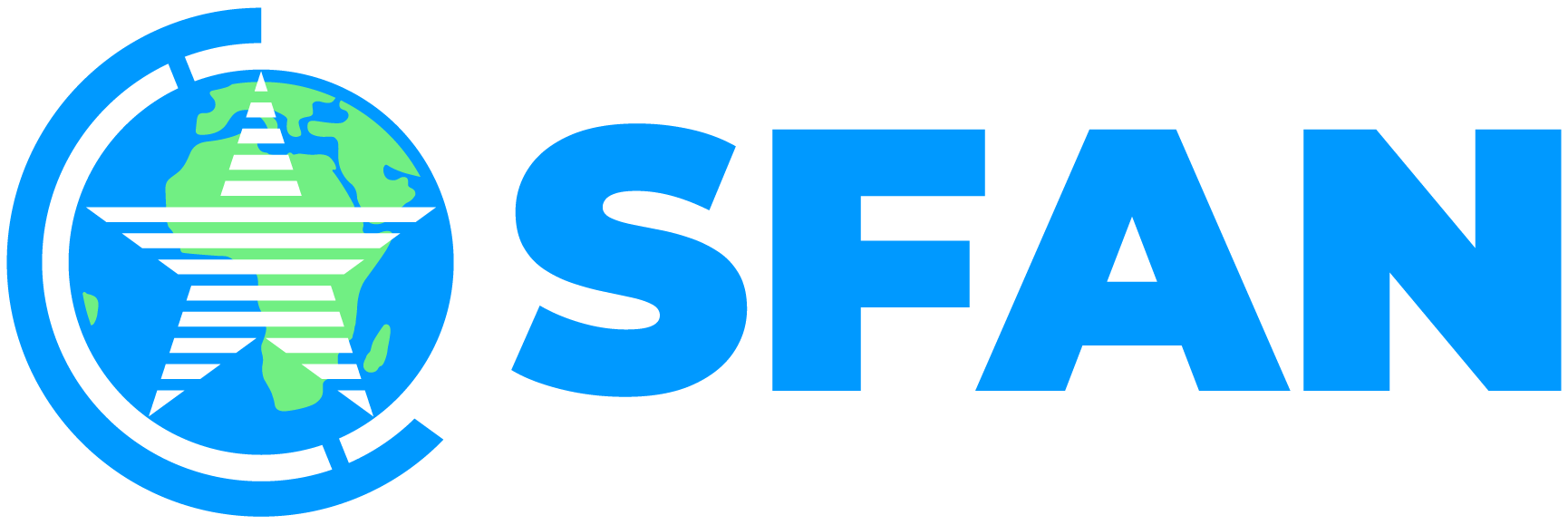Transformative Career Insights from Quantum Leap Career Fair 2025 Future of Work Panel
by Tom-Chris Emewulu · Career advice
Mon, 30 Jun 2025 · 3 minute read
Share
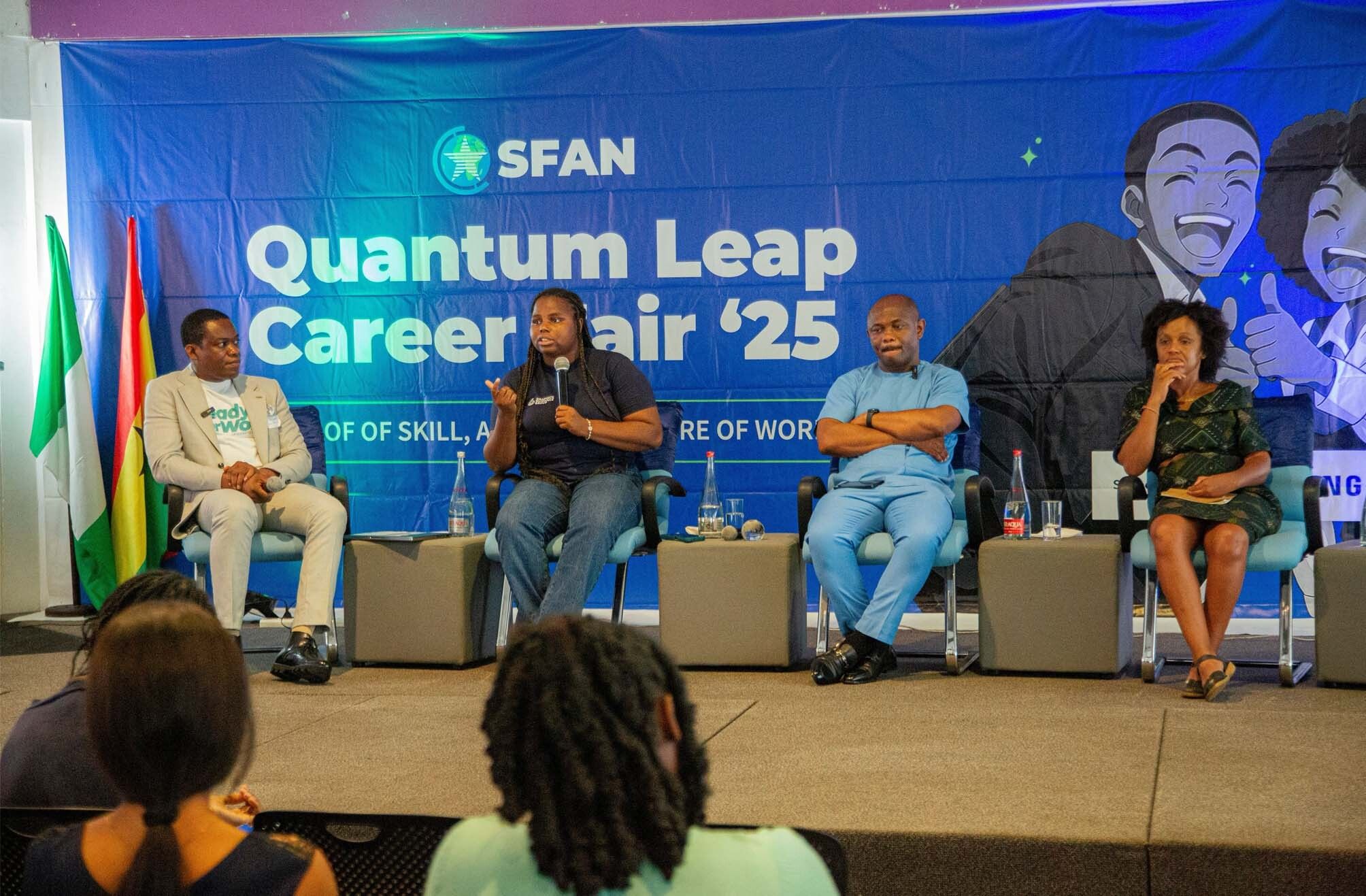
The Future of Work panel at Quantum Leap Career Fair 2025 delivered an inspiring and transformative experience for all attendees. Industry experts Andy Mensah, Human Resources and Administration Manager at Tropical Cable and Conductor Ltd, Elizabeth Patterson, social entrepreneur and founder/executive director of Girls Education Initiative of Ghana (GEIG), and Dorcas Temituro, Administrative and Marketing Officer for Africa at Graduate Guidance Group unravelled key trends and shifts shaping the future of work.
This recap brings you highlights of the transformative insights shared at the Quantum Leap Career Fair’s Future of Work panel.
Industry Evolution: Trends Shaping the Past, Present, and Future of Work
Kicking off the discussion with a masterful blend of expertise and foresight, Andy Mensah captivated Quantum Leap Career Fair 2025 attendees by tracing the evolution of work from its historical roots to today's dynamic landscape.
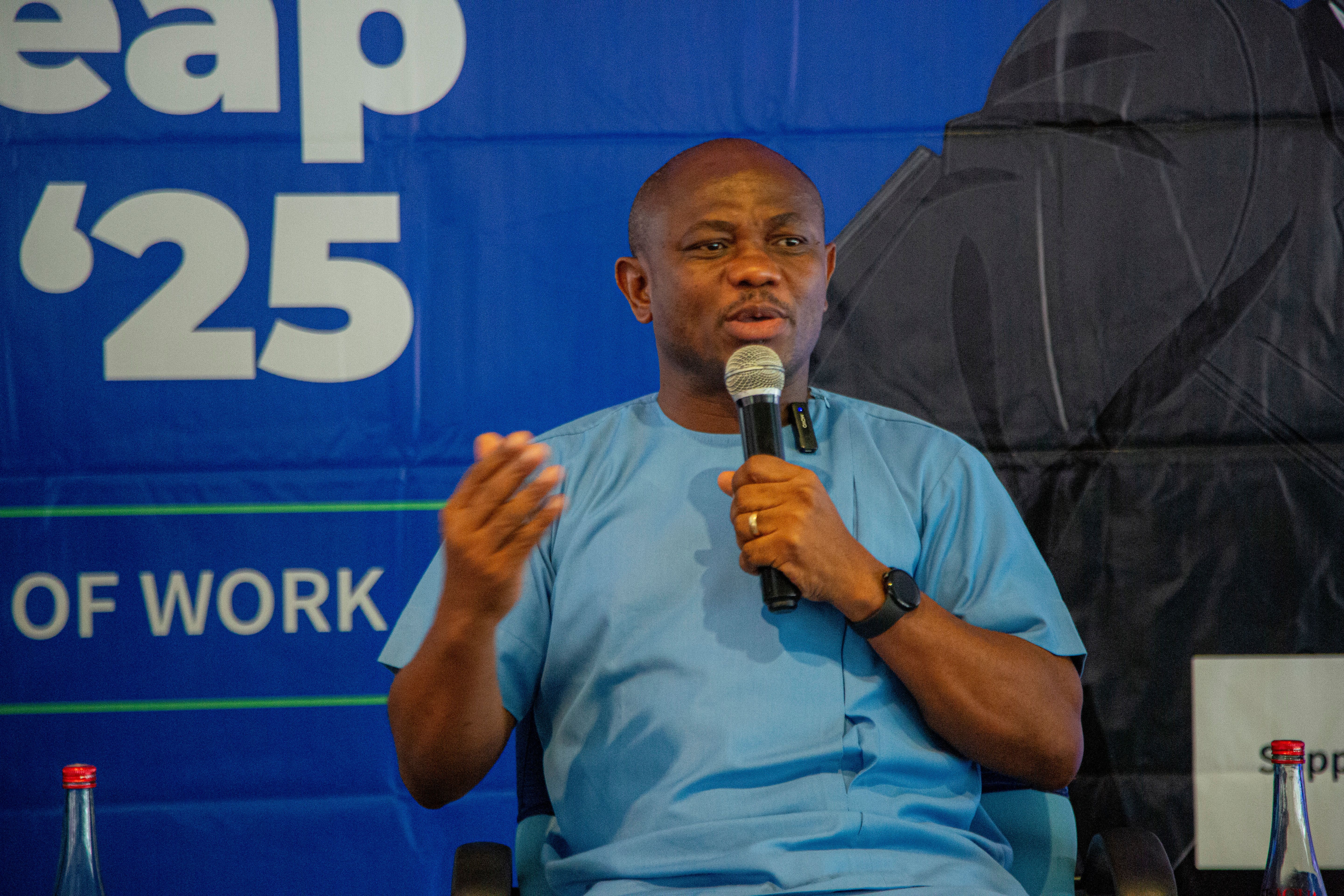
Before the 1750s, Andy said, work was largely manual. People worked as craftsmen and farmers. From 1750 to ~1950, the Industrial Revolution introduced mechanized processes and factory work, normalizing the 9-to-5 work structure.
Between 1950 and 2000, the knowledge economy emerged, giving rise to office-based roles like managers and accountants. From 2000 to 2020, the digital revolution transformed work through electronic data and IT systems. Entering the 2020s, artificial intelligence became a pivotal force, reshaping industries and workflows.
"If you look at the year breaks I gave," Andy said, "before 1750, it was thousands of years, from 1750 to 1950, it’s 200 years, 1950 to 2000, it’s just 50 years, and 2000 to 2020, that’s only 20 years. So, the changes are accelerating rapidly now. Today, I don’t know when the next shift will hit...within a year, everything could transform,” Andy Mensah told the attendees.
He emphasized the urgency of adapting to this fast-evolving landscape, where artificial intelligence and emerging technologies are driving unprecedented change. "Five or ten years ago, we feared job losses in the future. Granted, some jobs will disappear, but these technological transformations are creating even more opportunities. The question isn’t fear. It’s how you prepare for the possibilities ahead."
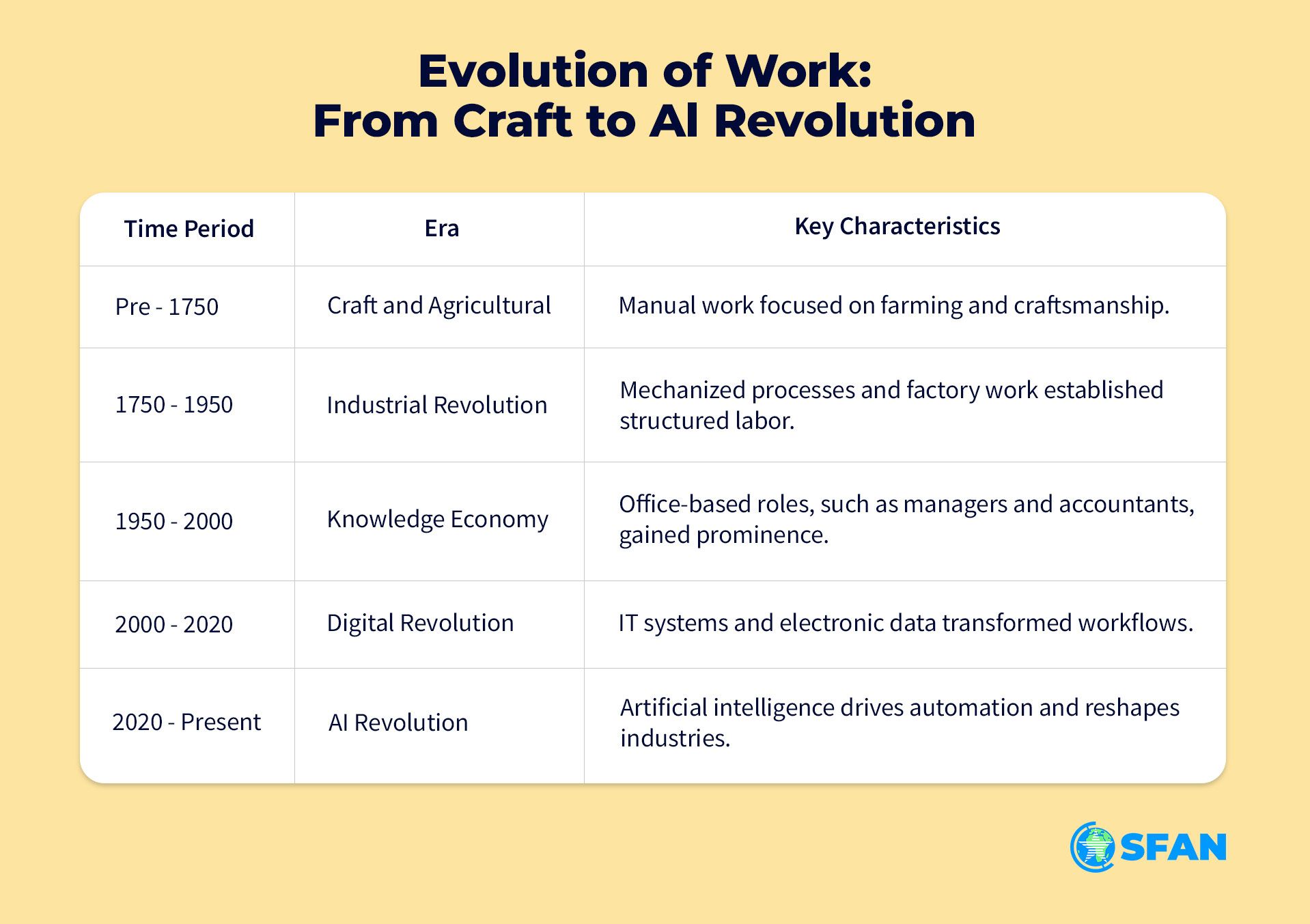
Preparing for the Future: Insights on Learning How to Learn
Building on the theme of preparing for the future with confidence, Elizabeth Patterson guided Quantum Leap Career Fair attendees on key skills and mindset shifts to stand out from competitors in the evolving workplace.
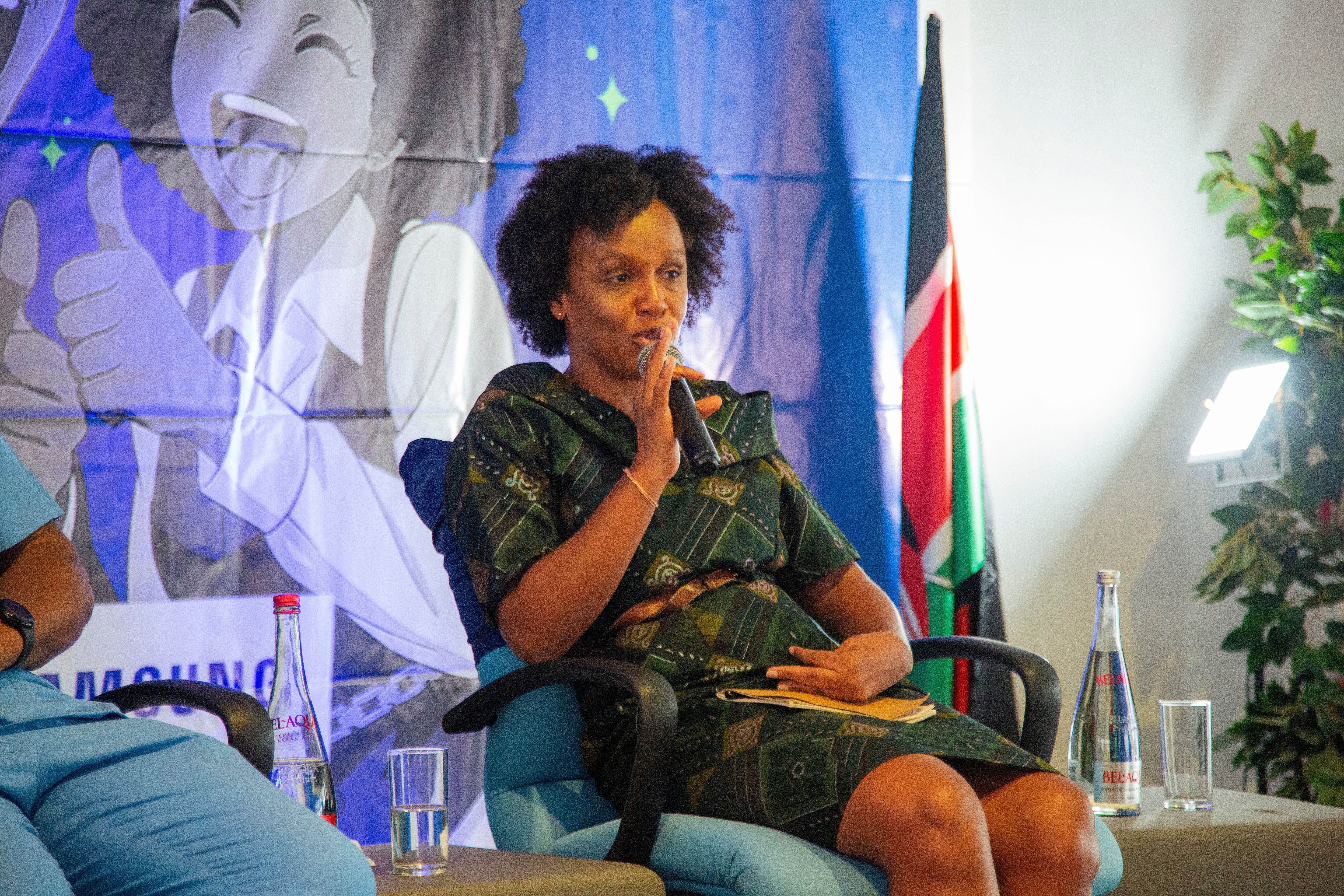
“Don’t let your degree define you. Studying medicine doesn’t mean you must be a doctor. Stay open to new fields and prioritize digital skills – they’re essential for every career,” Elizabeth advised.
Dorcas Temituro enriched the discussion by sharing her journey of guiding students to align their academic goals with career success. "No one tells you it’s okay not to have the next five or ten years all planned out. You might be in one field and then switch to something else. That’s the first thing to know. When I was in school, I studied BBA Accounting, but I craved a broader view of business. Hence, I took marketing and HR classes, some without grades. After graduating, I interned in marketing and dabbled in HR, recruiting, and training. I still haven’t fully mapped out who Dorcas will be in ten years, and that’s fine. But my current role would not have been possible without this broader view and skillset," Dorcas highlighted.
Andy Mensah embodies that value of flexibility and lifelong learning, having transitioned from a finance career to thriving in HR. His advice to entry-level talents? “Learn something meaningful in your spare time. Learn how to trade. Learn how to do analytics. That's worth every dollar. In fact, the jobs that will survive in the future are the jobs that you can do with your hands. Those kinds of jobs are not going away...So, regardless of what happens, I'm not going to lose hope.”
Why Employers Value Proven Skills Over Polished CVs
As the job market evolves, employers continually prioritize tangible skills over polished resumes. A 2024 U.S. Chamber of Commerce report, reflecting global hiring trends, found that 78% of employers prioritize skills over degrees, a shift echoed in African markets where technical competencies are increasingly valued.
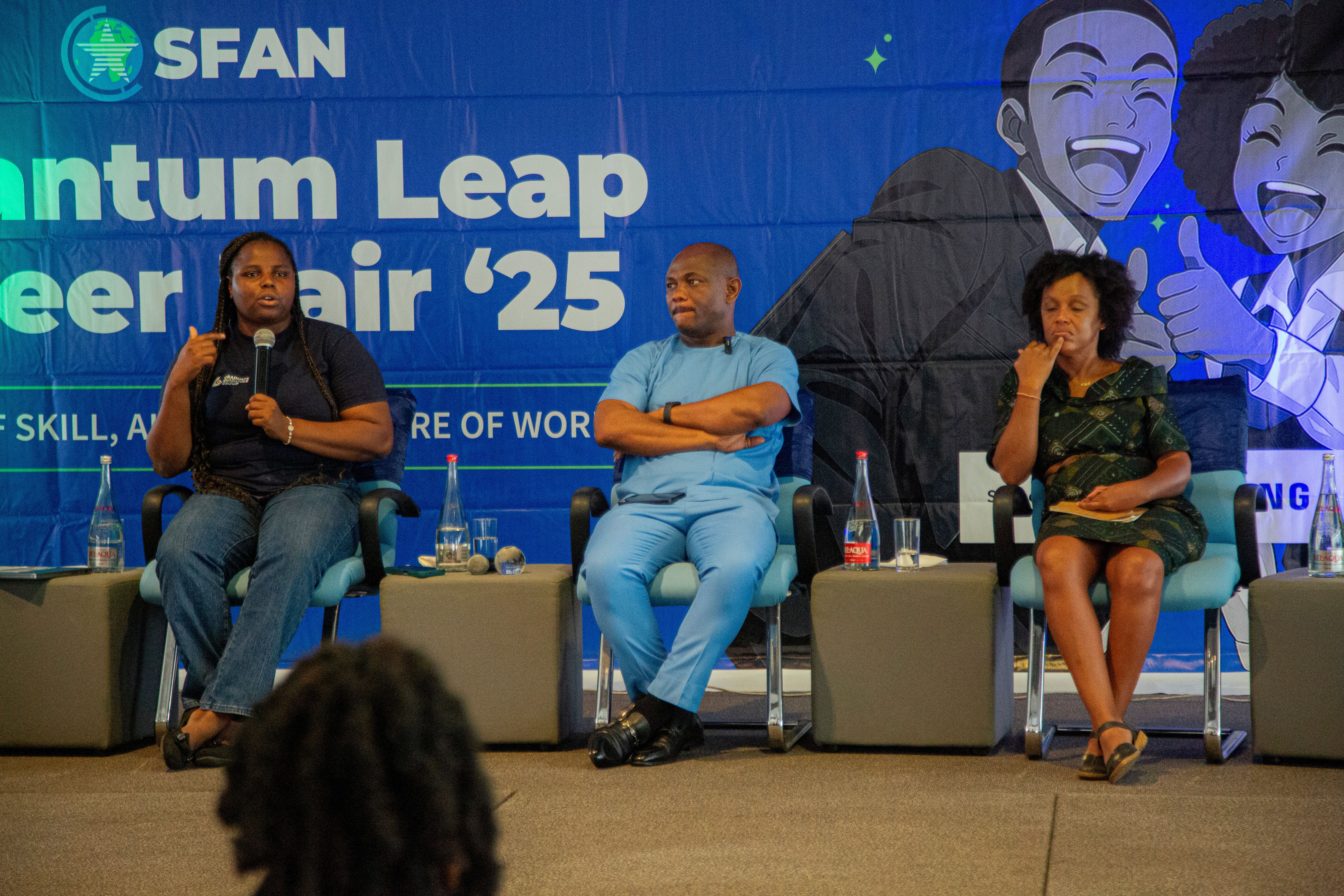
That's why our ReadyforWork platform helps entry-level job seekers to uplevel and demonstrate measurable proof of skills to prospective employers. We've seen that candidates with proven, position-relevant competencies can reduce their job search time by six months or more. Idris Abdulkareem, a ReadyforWork Cohort 5 participant, launched his dream data career at Interswitch by showcasing tangible skills gained through the program.
Building on that theme, Andy highlighted that many jobs are filled through informal networks. That’s primarily because "somebody can come and sit in front of you and speak good English, and you think this guy can do the job. You give it to him, probation is rubbish. So we advertise, but most of the time, we know who we want already."
"It's unfair," he said, "but I want the best. So if somebody has the package or comes recommended, I'll likely hire that person. That’s why networking is vital as well."
Dorcas emphasized that degrees no longer guarantee competency. "Today, it’s all about what you can do, not how sweet a talker you are," she told Quantum Leap Career Fair 2025 attendees.
Elizabeth challenged education and training providers to design programs that meet the real needs of underserved communities, especially those with limited exposure to mainstream technology. She also urged participants to rethink networking, not as a means to get something, but as an opportunity to give value and build meaningful, mutual relationships.
Balancing Purpose and Professional Success
There’s a growing discourse on the impact of social media on youth. One critical aspect is its effect on career development and professional identity. Platforms like LinkedIn and Instagram are a source of empowerment and self-actualization. But they can also be a source of pressure, distraction, and disillusionment.
Curated portrayals of instant success and lavish lifestyles can distort reality, fueling inadequacy and anxiety. Research links this trend to the rising cybercrime in West Africa, where groups like the Yahoo Boys, driven by peer pressure from aspirational online personas, normalize fraud as a means to quick wealth. In this context, Dorcas urged attendees to focus on their unique paths: “Social media often misrepresents reality. Move at your own pace, build skills, and distinguish yourself authentically.”
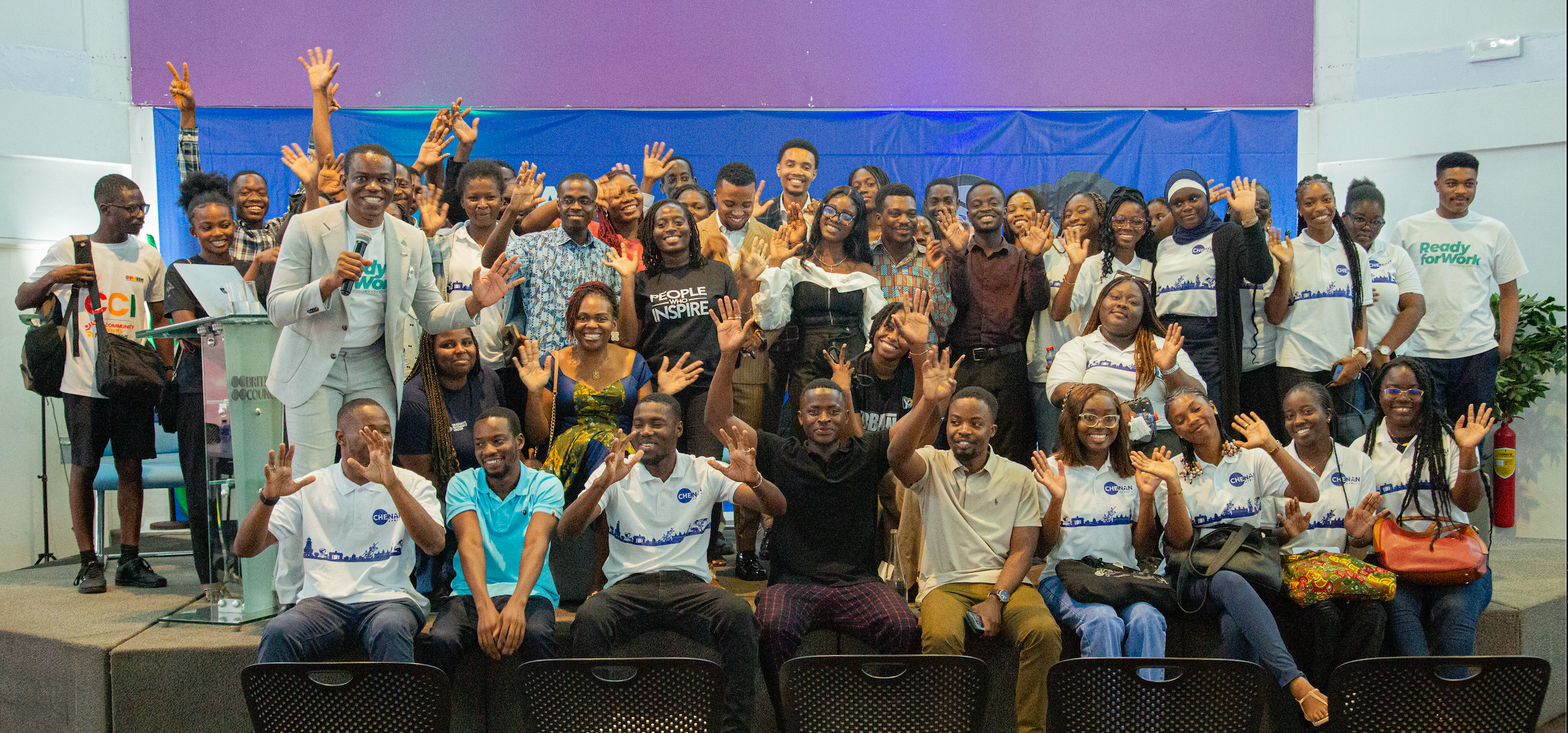
Andy shared a personal reflection on finding balance: “After university, I followed the trend of migrating abroad. However, at some point, I decided to come back to Ghana. But returning to Ghana left me unemployed while my juniors thrived. It was tough. Naturally, you’ll feel bad, but I learned not to let others’ achievements derail my journey.”
Elizabeth echoed this, challenging the notion that success lies abroad, especially given the 2024 African Youth Survey’s finding that 58% of African youth aspire to emigrate due to limited local opportunities. “Why do we believe value exists only outside our continent?” she asked. “Let’s create conditions here for our people to thrive.”
Final Thoughts
The Future of Work panel at Quantum Leap Career Fair 2025 went beyond mere predictions. It delivered clarity, inspiration, and a renewed sense of purpose to attendees. In an era of rapidly evolving job markets, the insights from Andy Mensah, Elizabeth Patterson, and Dorcas Temituro underscore that career success is achievable through deliberate effort. They emphasized cultivating a mindset that embraces continuous learning, adaptability, and skill development over superficial performance. The most impactful takeaway stemmed not from theoretical frameworks or statistics but from authentic, lived experiences. Setbacks, detours, and uncertainty, they shared, can catalyze profound career growth.
As I conclude this recap, I leave you with a final reflection: True success isn’t necessarily about mimicking the flashy lifestyles of a rap video. It’s about showing up authentically wherever you are. Ultimately, the future of work will be defined not just by what we do but by who we become and the connections we forge along the way.
To help you embody the adaptability and purpose championed by our panelists, we’ve curated digital skills training programs in data science, AI, digital marketing, UX, and more. Explore these courses at www.readyforwork.africa to shape a career that reflects your unique potential.

